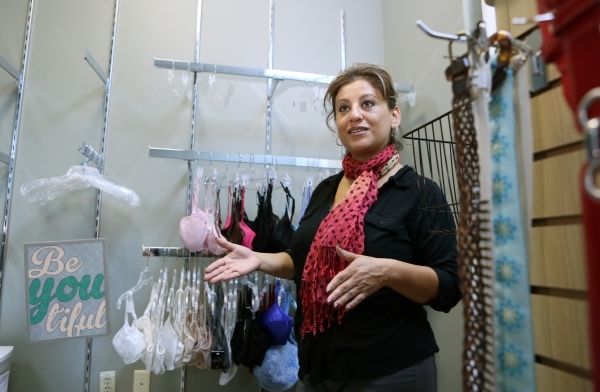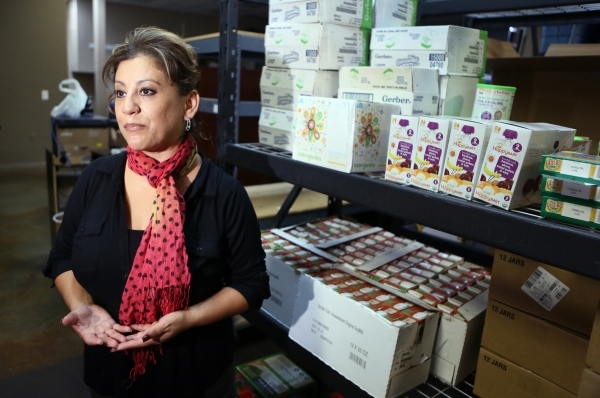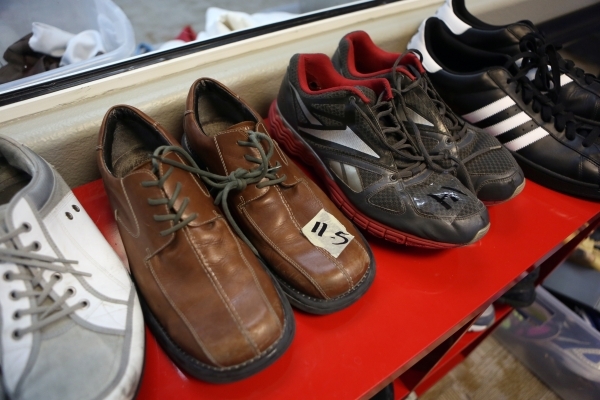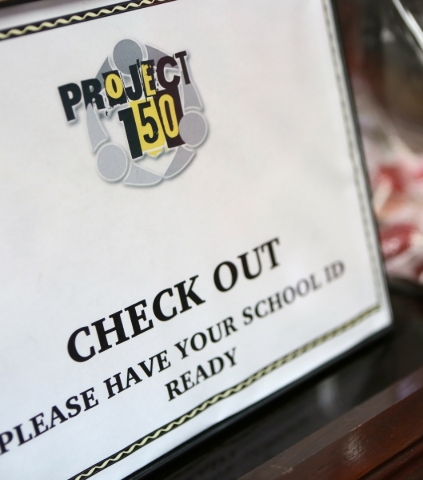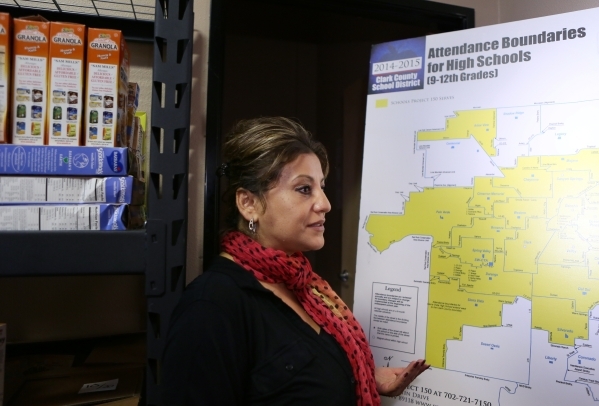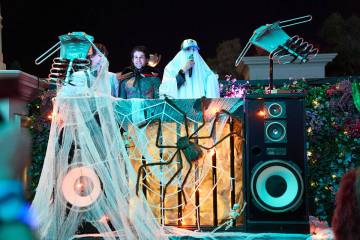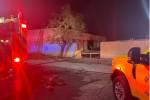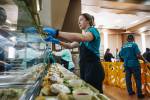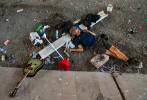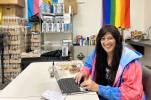Project 150’s new facility gives homeless students food, clothing
High school is typically a time to prepare and discover life's potentials, but for others, it's also the only place that brings comfort and security.
That's the reality of thousands of students who sit in the classroom with nowhere to go after school.
"Nevada defines homelessness as anyone who does not have a permanent residence," said Meli Pulido, executive director of Project 150, a nonprofit that aims to meet the needs of homeless, displaced or disadvantaged high school students by providing food, clothing, school supplies and special requests. "You can live with family members or friends and be considered homeless. Students in these situations experience added stress, which can affect their grades."
In Clark County, the number of homeless students attending public high schools continues to increase.
To assist the more than 2,100 high school students who identify as homeless in the Las Vegas Valley, Project 150 has moved into a new warehouse in the northwest valley. The 8,000-square-foot facility at 3600 N. Rancho Drive features offices, a volunteer center and Betty's, a place where local high school students can shop for free clothing in a boutique-style setting.
In addition to helping students at more than 40 high schools throughout Clark County, Project 150 offers services at five schools in Northern Nevada.
The nonprofit started in 2011 when local businessmen Don Purdue and Patrick Spargur wanted to assist students after hearing about the 150 homeless high school students at Rancho High School in Las Vegas who were in need of support over the Christmas break.
"Homeless and disadvantaged students are everywhere," Pulido said. "People think they're concentrated in certain areas, but we serve students in places like Arbor View and Centennial High School where you wouldn't think there'd be homeless students."
Those who are considered disadvantaged can come from a variety of situations, including having an ill or jobless parent, she added.
The new warehouse is in need of in-kind tax-deductible donations of new and gently used clothing and accessories for teens, in addition to school supplies, hygiene items and financial assistance.
Donations of $25 are accepted for holiday meals, which are expected to feed 16,000 families during Thanksgiving and Christmas.
Pulido said that often, students put other priorities, such as younger siblings and other family members, ahead of themselves. To alleviate the issues, the nonprofit also assists their families with clothing, shoes and food.
Outside donations from the public, casinos and American e-commerce company Vitacost help provide weekend meal bags and infant formula and baby food.
"We look for clothes that are teen-appropriate and trendy," Pulido said. "They already stand out, so we want them to blend in with their clothes."
Donations that do not meet their standards are repurposed to other nonprofits, including The Shade Tree and Homeless Vets and Goodwill, which will exchange pick-ups for gift cards.
Any high school student with an ID can shop between 2 to 5 p.m. Monday through Friday at Project 150's Betty's Showroom. Individual high schools also are invited to shop an additional two Saturdays out of the month.
Students who shop at Betty's are allowed to take 10 outfits, two pairs of footwear, three pairs of socks and three undergarments. They are also given food and school supplies upon request.
The organization also partners with other nonprofits to service victims of sex trafficking.
After the recession in 2008, Pulido said that many families with healthy incomes started going downhill but didn't know how to ask for help.
"For the most part, students are not greedy. They take exactly what they need," Pulido said. "We also offer items like soup cups, which may not be the most nutritious, but students can easily fill them with hot water at a nearby 7-Eleven."
Pulido is hoping to organize school field trips to the showroom to bring awareness to students who are homeless or disadvantaged and the issues that they face, which include domestic violence, drug and alcohol abuse or immigration issues.
According to Pulido, 44 percent of the student population the organization serves is Hispanic.
To help make the transition to young adult easier, the nonprofit also hosts career fairs and offers resume workshops.
It also financially assists students with caps and gowns, bus passes or senior photos and hosts the Las Vegas Prom Closet, complete with makeovers, in the spring to create a memorable high school experience.
Pulido recalls a young student who was head of her cheerleading team and was homeless. She wore a scarf and changed it up to create new outfits.
"She led a double life, and no one knew she was homeless," Pulido said. "She used the bathrooms of fast food places to clean herself up. There are so many students that need shelters; that's why our ultimate goal is to add housing."
In January 2014, the Southern Nevada Hispanic Employment Program Youth Council, founded in 2009 by teen sisters Senia and Sabrina Roybal, transitioned under Project 150's umbrella.
"Anyone between 12 to 24 can join the youth council through out website," Senia Roybal said. "We want to make sure students stay on the right path to success whether that be by going college or working."
Youth Council members assist in fulfilling Project 150's mission.
"It's hard enough going through high school as a regular student; imagine what it's like to experience high school being homeless. Some students do their homework under street lights or hang out at McDonald's, hoping they won't make anyone uncomfortable enough to get kicked out," Pulido said. "That's why our doors are always open. We remind students that this isn't a handout; it's a hand up."
Visit project150.org or call 702-721-7150.
— To reach North View reporter Sandy Lopez, email slopez@viewnews.com or call 702-383-4686. Find her on Twitter: @JournalismSandy.



